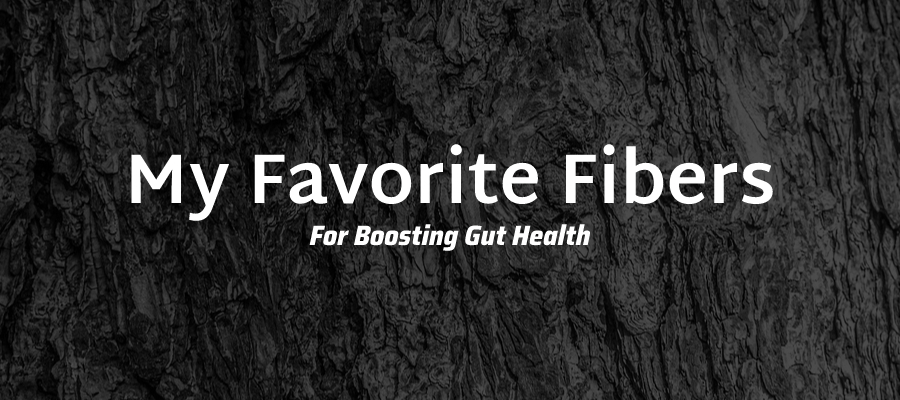My Favorite Fiber Supplements
In my Nutritional Philosophy, I mentioned having HMOs and Larch in my cabinet. Since publishing, I have had several questions about both types of fiber. Today, I want to share a little more about these amazing fibers and why I always have some on hand.
HMOs
Human milk oligosaccharides (HMOs) are not really fibers. Technically, they are complex fiber-like sugars found in human breast milk. However, like certain types of fiber, HMOs are not digested. They pass through the digestive system and are fermented by the beneficial bacteria in the gut. This fermentation process produces short-chain fatty acids, which have a number of health benefits.
HMOs are considered to be the third most abundant component of human breast milk, after lactose and fat. There are over 200 different types of HMOs, each with a unique structure and potential health benefits. HMOs are not found in infant formula, and their precise role in human health is not yet fully understood. However, HMOs are thought to have a number of potential health benefits for infants and young children, including supporting the immune system, promoting gut health, preventing UTIs, and improving cognitive development.
Supporting the immune system: HMOs have been shown to support the development of the immune system, helping to protect us from infections and other illnesses.
Reducing the risk of allergies: Some studies have suggested that HMOs may reduce the risk of allergies in infants and young children. It is unknown whether or not this same effect happens in adults, but it looks promising.
Promoting gut health: HMOs have been shown to support the growth of beneficial bacteria in the gut, which can help to promote overall gut health.
Improving cognitive development: This is my favorite. Some studies have suggested that HMOs may positively affect cognitive development in infants and young children.
Reducing the risk of certain diseases: Some research suggests that HMOs may help to reduce the risk of certain diseases, such as obesity and diabetes.
Overall, HMOs are thought to be an important component of human breast milk and may have a number of potential health benefits for infants and adults. HMOs are available in supplement form and can usually be purchased at a health food store or on websites such as Amazon.
Larch
Larch arabinogalactan is a type of soluble fiber that is derived from the wood (or sap) of the larch tree (Larix species). It is a polysaccharide, which means that it is made up of long chains of simple sugars. Arabinogalactan is found in the cell walls of many plants, including larch trees, and has a number of potential health benefits. It is sometimes used as a dietary supplement and is available in various forms, including capsules, tablets, and powder.
Some studies have suggested that larch arabinogalactan may have a number of potential health benefits, including:
Immune support: Some research suggests that larch arabinogalactan may help to support the immune system. It may stimulate the production of immune cells and enhance the activity of certain immune system proteins.
Digestive support: Larch arabinogalactan may help to support digestive health by promoting the growth of beneficial bacteria in the gut. It may also help to bulk up the stool and reduce constipation.
Cholesterol reduction: Some studies have found that larch arabinogalactan may help to reduce cholesterol levels in the blood.
Cancer prevention: Some research suggests that larch arabinogalactan may have anti-carcinogenic properties and may help to reduce the risk of certain types of cancer.
It is important to note that research is ongoing with both of these products. Indeed, more research is needed to understand their full potential or limitation better. It is also worth noting that dietary supplements are not regulated by the U.S. Food and Drug Administration (FDA) in the same way that medications are, and the safety and effectiveness of supplements can vary. If you are considering taking either product, it is always a good idea to speak with a nutritionally competent healthcare provider first.
Dr. Robertson is a health researcher and educator, not a physician. The information provided here is not medical advice, a professional diagnosis, opinion, treatment, or service to you or any other individual. The information provided is for educational and anecdotal purposes only and is not a substitute for medical or professional care. You should not use the information in place of a visit, call consultation, or the advice of your physician or other healthcare providers. Dr. Robertson is not liable or responsible for any advice, course of treatment, diagnosis, or additional information, services, or product you obtain or utilize. IF YOU BELIEVE YOU HAVE A MEDICAL EMERGENCY, YOU SHOULD IMMEDIATELY CALL 911 OR YOUR PHYSICIAN.




